Report from the 2nd International Conference: ‘Central European Masculinities in a Comparative Perspective’
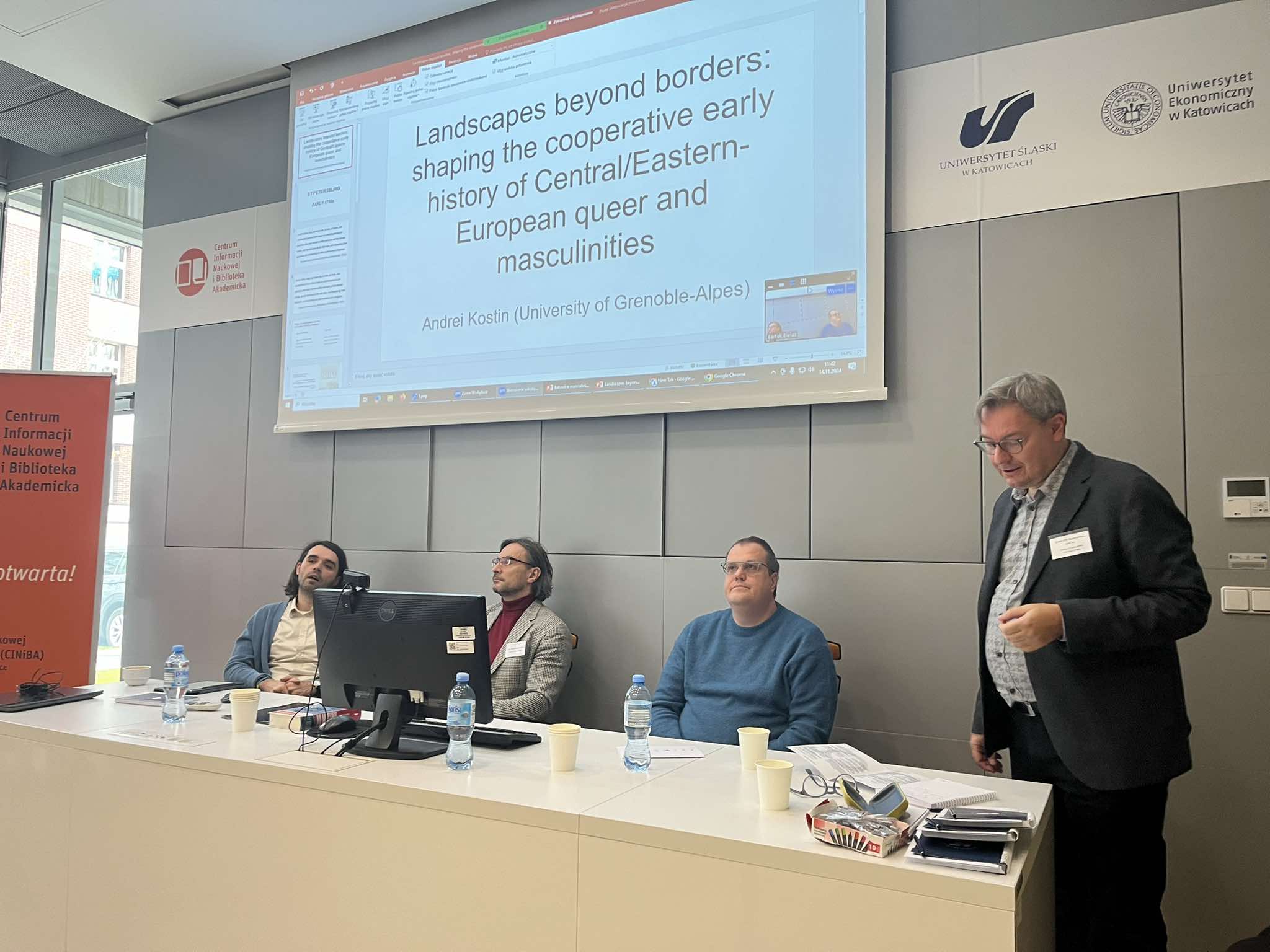
The International Conference: ‘Central European Masculinities in a Comparative Perspective’ was held in Katowice on 14–15 November 2024, following and expanding themes of Critical Studies on Men and Masculinities in Central Europe, covered on the previous international symposium in Prague (19–20 June 2024). It was a second event organized within the Central-European Masculinities research project, brought together by academic institutions such as: the Institute of Literary Studies at the University of Silesia in Katowice, the Department of Czech and Comparative Literature at Charles University, the Institute of Czech Literature at the Czech Academy of Sciences, the Institute of Polish Culture at the University of Warsaw, the Institute of Slovak Literature at the Slovak Academy of Sciences, the Center for Social Sciences – Sociology Institute in Budapest, and the French Research Center in Humanities and Social Sciences in Prague (CEFRES – CNRS-MEAE). The conference was also supported by the French Ministry of Higher Education and Research through the PARCECO programme. The two-day event divided between three key thematic blocks – Methodologies, Circulations, Traditions – addressed and explored various topics of (de)construction of Central European masculinities in historical and contemporary context, focusing on tradition, culture and literature. This report provides insight into the given presentations and their conclusions contributing to the research on Central European masculinities.
The conference opened with keynote lecture “What to Do with Men?’’ given by Ivan Jablonka (Sorbonne Paris Nord University), critiquing the rise of populism and its intersection with traditional masculinities, focusing on recent election of Donald Trump, while questioning why working-class white men in both EU and the USA are drawn to such conservative politics. The emphasis was put on the need for introspection among men and acknowledgment of their role in perpetuating patriarchal systems. Jablonka advocated for “masculine feminism’’ that is just and committed to a collective action, urging men to redefine their masculinity and contribute to social change alongside women in pursuit of gender equality.
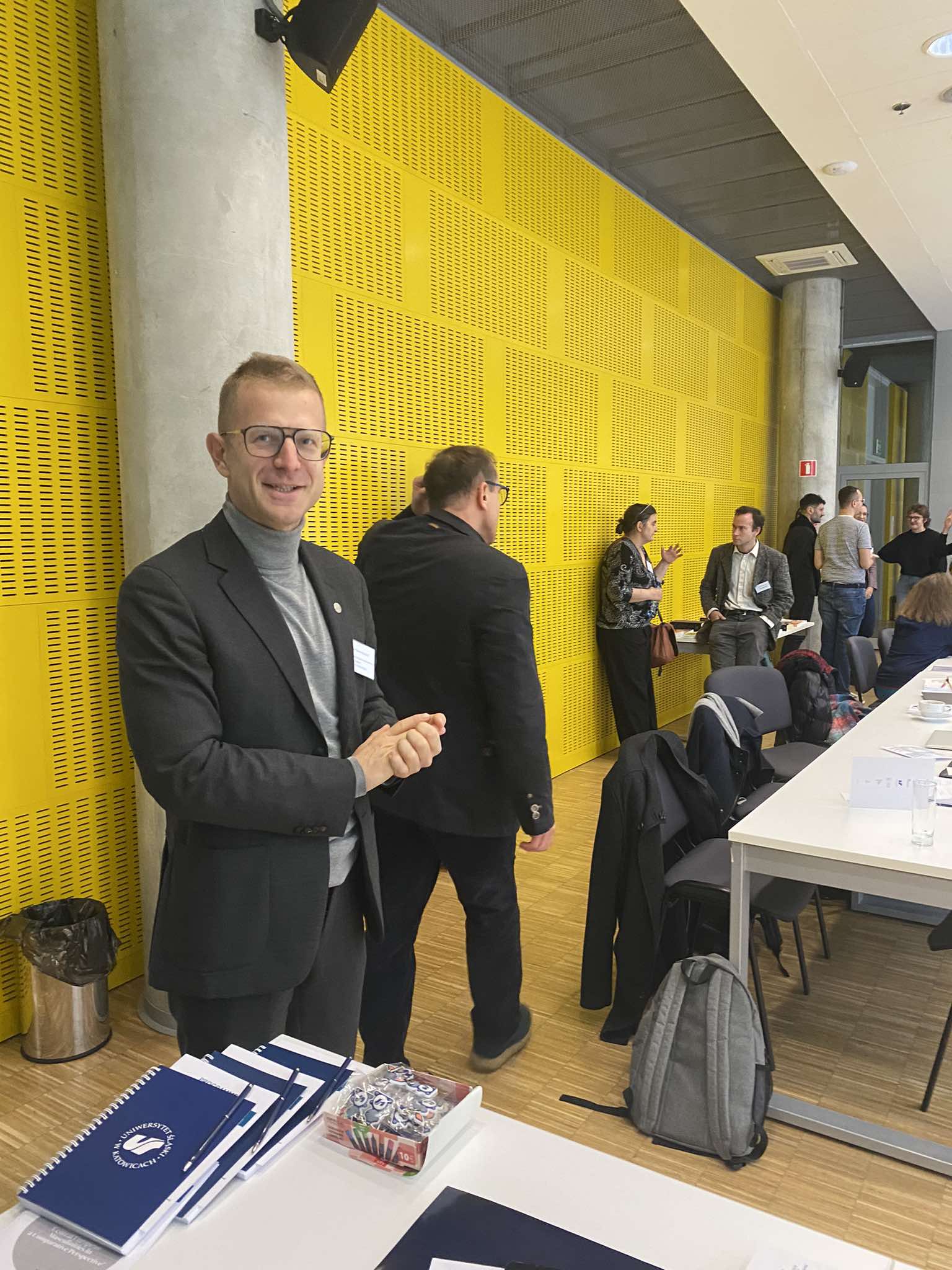
The first and second panels titled ‘Methodologies’ presented recollections and perspectives on the history of masculinities in Central and Eastern Europe in methodological frameworks. Andrei Kostin (University of Grenoble Alpes) explored the early history of Central and Eastern-European queer and masculinities, focusing on Krasheninnikov’s Description of Kamchatka and Russian nominations of “converted gender” personas. He called for the need of collaboration between queer, masculinities, decolonial and environmental histories to properly explore early queer history of Central/Eastern Europe, helping to turn from the “big narratives” to actual humans. Tomasz Tomasik (Pomeranian University in Słupsk) presented notes on history of Polish masculinities. He explored the complicated beginnings of masculinity in Poland, deeply rooted in Christianity and its conflict with paganism, and the legacy of Sarmatian culture, leading to tensions between pride and shame in men. Mariusz Kałczewiak (University of Potsdam) examined the approach to the Jewish identity and masculinity in 1920s and 1930s Poland and challenged previous conceptualizations of Jewish masculinities, framed as excluded from male hegemony. Through examples of Jewish men in military, sports and university fraternities, he argued for an alternative and regional historical narrative recognizing that Polish Jews who, despite facing systemic exclusions, confidently embraced Western masculine ideals.
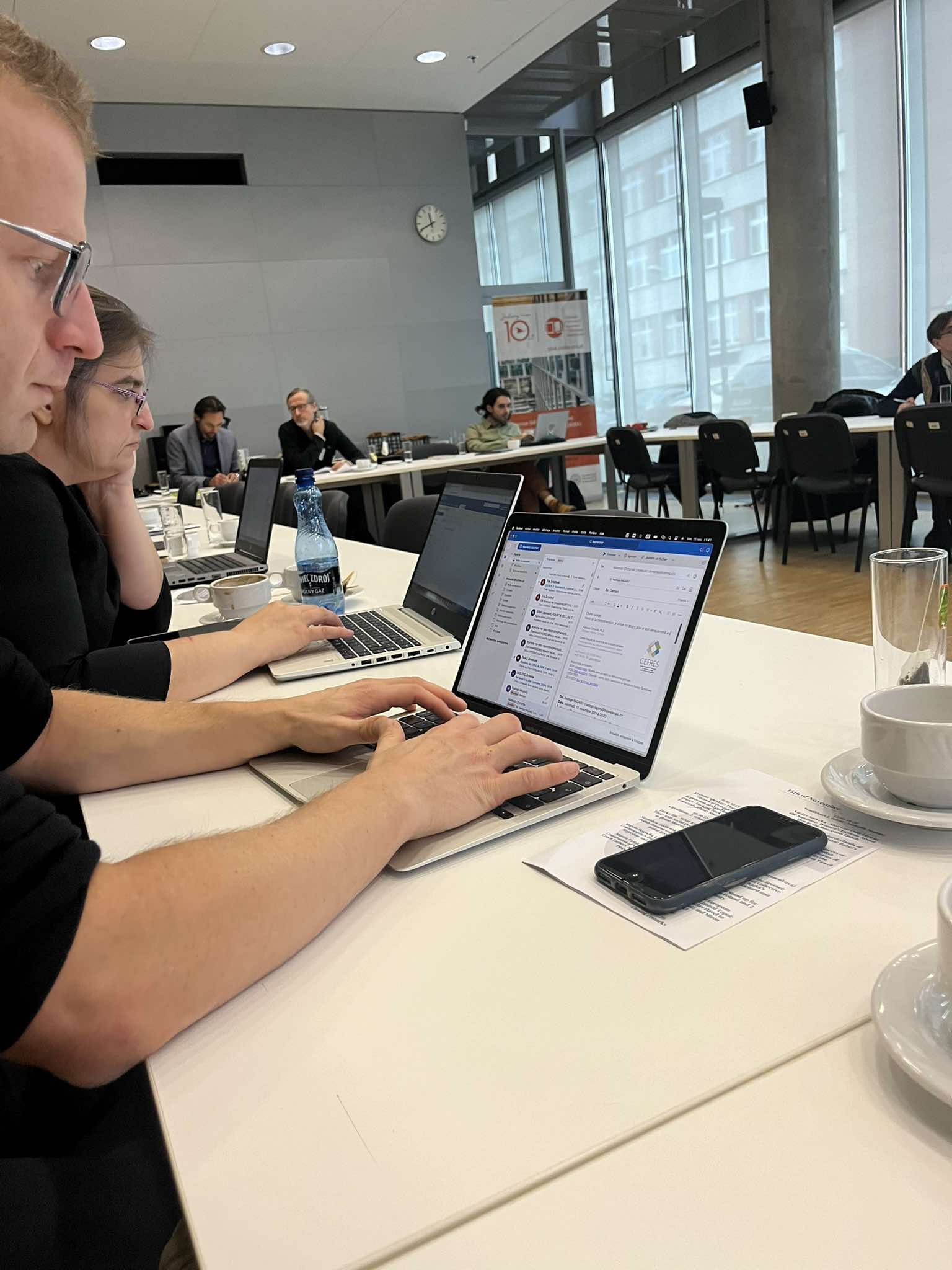
The second panel of ‘Methodologies’ opened with Przemysław Górecki’s (American Studies Center at the University of Warsaw) presentation on methodical side of his research on masculinities in literature. He advocated for the possibility of methodologically situating Polish masculinity studies within the framework of external concepts, especially American ones. Tereza Jiroutová Kynčlová (Faculty of Humanities, Charles University) applying the critical concept of petromasculinity, explored how the association with fossil fuels shapes the identity of men, representing the embodiment of hegemonic masculinity. Presenting examples of prominent Czech male figures (Křetínský and Turek), she highlighted how their ties with fossil fuel industries help them capitalize on stereotypical masculinities and influence their authority and public perception. Josef Šebek (Department of Czech and Comparative Literature, Faculty of Arts, Charles University) explored cases of “non-normative” masculinities of adolescents and young adults in Czech literature and cinema from the socialist period. Analysing the short story “Pink Logarithms” by Ladislav Fuks and various Czech films, the presentation contributed to the methodological debate on analysing cultural representation in relation to historically situated discourses of masculinity.
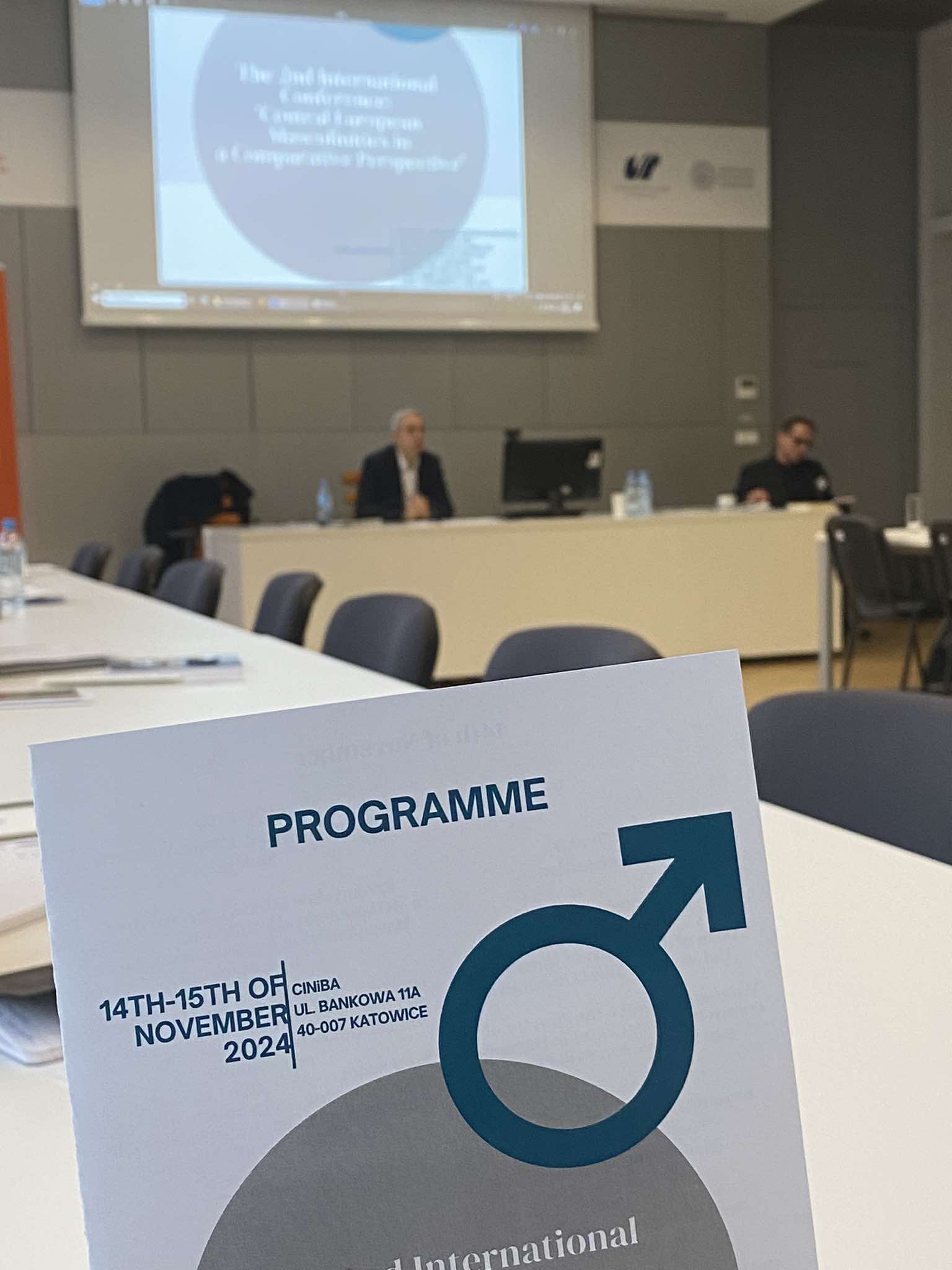 The third panel, titled ‘Circulations’, offered insight on forms of masculinities in Slovak and Polish literature, their receptions and transformations. Ivana Taranenková (Institute of Slovak Literature, Slovak Academy of Sciences) examined the evolution of Don Juan archetype in Slovak literature in 19th and 20th century. Through various literary texts, she explored how this centred on the conquest of pleasure model of masculinity was used to address national and class struggles, identity crises and contemporary ideological discourses, categorizing Don Juan both as an aesthetic figure and strong masculine being. The last panellist of the day, Ewa Róża Janion (University of Warsaw) presented strategies employed by Polish critics, literary scholars and translators in discussing homosexuality in the works of Greek poet C. P. Cavafy. She revealed that polish reception often viewed Cavafy’s homosexuality as a stylistic flaw and deviation from modern masculine ideals, preventing them from recognizing the subversive potential of his works.
The third panel, titled ‘Circulations’, offered insight on forms of masculinities in Slovak and Polish literature, their receptions and transformations. Ivana Taranenková (Institute of Slovak Literature, Slovak Academy of Sciences) examined the evolution of Don Juan archetype in Slovak literature in 19th and 20th century. Through various literary texts, she explored how this centred on the conquest of pleasure model of masculinity was used to address national and class struggles, identity crises and contemporary ideological discourses, categorizing Don Juan both as an aesthetic figure and strong masculine being. The last panellist of the day, Ewa Róża Janion (University of Warsaw) presented strategies employed by Polish critics, literary scholars and translators in discussing homosexuality in the works of Greek poet C. P. Cavafy. She revealed that polish reception often viewed Cavafy’s homosexuality as a stylistic flaw and deviation from modern masculine ideals, preventing them from recognizing the subversive potential of his works.
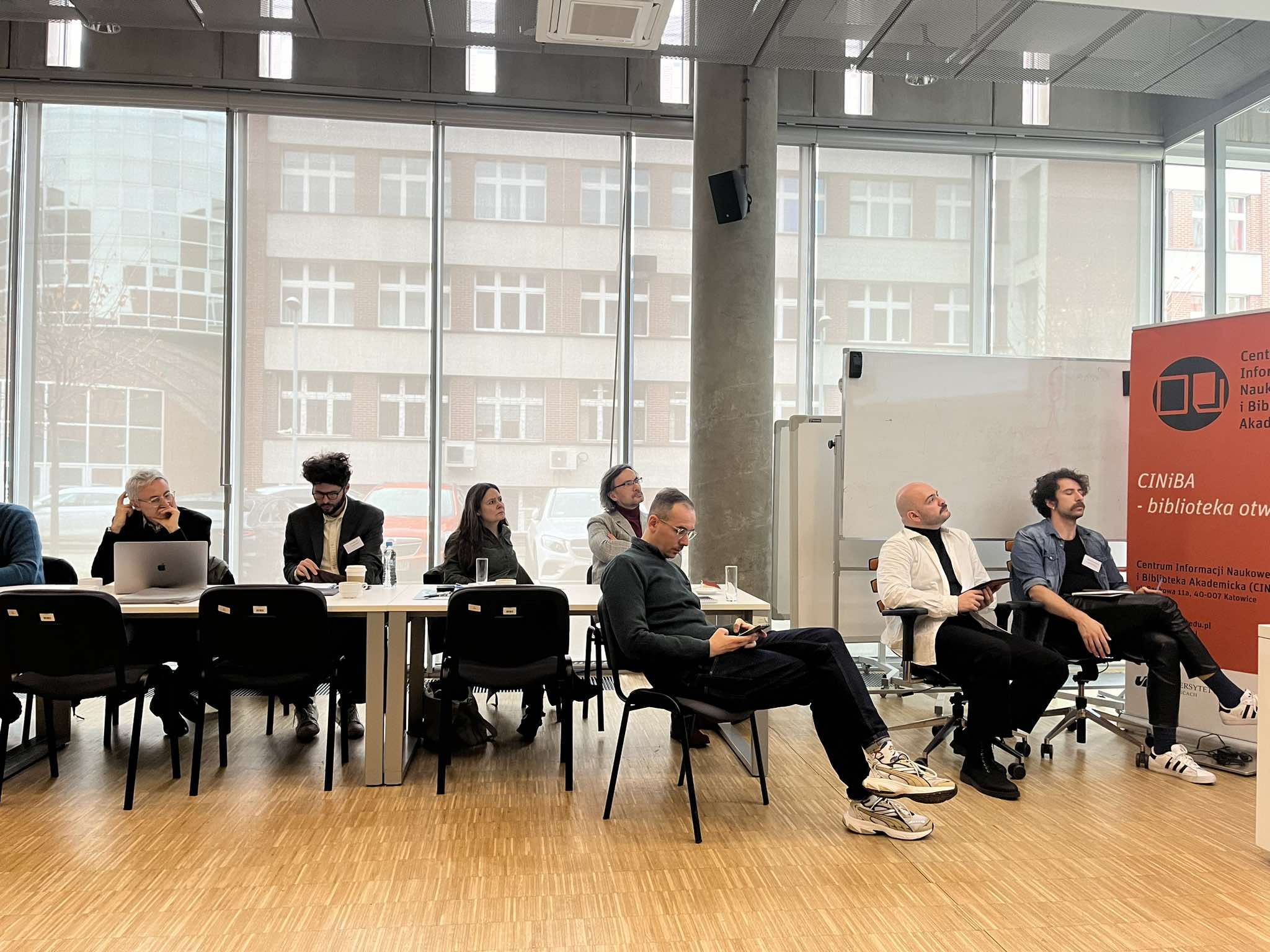 The second day of the conference opened with a keynote lecture titled “Historical Perspectives on the Repression of Male Homosexuality in France: Looking Backwards, Looking Forwards” by Florence Tamagane (University of Lille). She offered a complex presentation on male homosexual subcultures in France under police investigation, focusing on the Toulon case files (1925–1942; 1953–1954), which included reports, letters and photographs of a well-organized queer subcultures, especially in the Navy. The police recognized male homosexuality as a social, political and military threat, repressing it accordingly. Presented current state of research in France highlights the need for detiled studies on local and regional level, approached form a comparative perspective, in order to construct a transnational history of the repression of homosexuality in Europe.
The second day of the conference opened with a keynote lecture titled “Historical Perspectives on the Repression of Male Homosexuality in France: Looking Backwards, Looking Forwards” by Florence Tamagane (University of Lille). She offered a complex presentation on male homosexual subcultures in France under police investigation, focusing on the Toulon case files (1925–1942; 1953–1954), which included reports, letters and photographs of a well-organized queer subcultures, especially in the Navy. The police recognized male homosexuality as a social, political and military threat, repressing it accordingly. Presented current state of research in France highlights the need for detiled studies on local and regional level, approached form a comparative perspective, in order to construct a transnational history of the repression of homosexuality in Europe.
 The first panel of the day continued the topic of “Circulations”, focusing on queer masculinities in various art forms and exploring constructions of masculinity in local contexts. Darko Ilin (University of Nova Gorica) explored the representation of anti-social queer masculinities in Brante Mozetič’s early prose, particulary Passion (1993), Angels (1996), and The Lost Story (2001), set in post-Yugoslav and post-socialist Slovenia, situating them in in the context of Queer Death Studies. He analyzed them in a context of emerging models of masculinity found in queer transgressive literature, through applying theoretical framework of Hocquenghem, Bersani and Sedgwick, highlighting how these representations reflect broader cultural and literary movements in post-socialist European context. Next, Stanisław Godlewski (Insitute of Art, Polish Academy of Sciences) examined the polish homosexual theatre in post-war period, in attempt to define its thematic and aesthetic features. By analyzing works of key directors such as Krystian Lupa, Krzysztof Warlikowski and others, he highlighted how theater portrays homosexuality as suffering, idealizes non-normative desire through female characters, fetishizes the male body (Phaedra Figure), and operates within a framework, that while dealing with subversive themes, ultimately reaffirms patriarchal structures. Marcin Bogucki (University of Warsaw) explored contemporary Polish drag, considering how performers approach the concept of masculinity in their work. Using the performative theory of gender, he analysed polish drag personas of Dżaga, Lulla La Polaca, Babcia, Vrona and Princ Wonglo, presenting various approaches to masculinity, including rejection and escape from traditional masculine categories, as well as embracement of the nonhegemonic role through performance. The last presentation of the panel by Martin Fafejta (Palacky University in Olomouc) explored the construction of masculinity of the Czech Fathers’ right movement. The analysis of representatives’ arguments on gender equality proved the construction of masculinity to be incoherent and inconsistent, as they use conservative and misogynistic rhetoric towards women, believing in their own superiority, making them active co-creators of the hegemonic public sphere which contributes to their discrimination in fatherhood.
The first panel of the day continued the topic of “Circulations”, focusing on queer masculinities in various art forms and exploring constructions of masculinity in local contexts. Darko Ilin (University of Nova Gorica) explored the representation of anti-social queer masculinities in Brante Mozetič’s early prose, particulary Passion (1993), Angels (1996), and The Lost Story (2001), set in post-Yugoslav and post-socialist Slovenia, situating them in in the context of Queer Death Studies. He analyzed them in a context of emerging models of masculinity found in queer transgressive literature, through applying theoretical framework of Hocquenghem, Bersani and Sedgwick, highlighting how these representations reflect broader cultural and literary movements in post-socialist European context. Next, Stanisław Godlewski (Insitute of Art, Polish Academy of Sciences) examined the polish homosexual theatre in post-war period, in attempt to define its thematic and aesthetic features. By analyzing works of key directors such as Krystian Lupa, Krzysztof Warlikowski and others, he highlighted how theater portrays homosexuality as suffering, idealizes non-normative desire through female characters, fetishizes the male body (Phaedra Figure), and operates within a framework, that while dealing with subversive themes, ultimately reaffirms patriarchal structures. Marcin Bogucki (University of Warsaw) explored contemporary Polish drag, considering how performers approach the concept of masculinity in their work. Using the performative theory of gender, he analysed polish drag personas of Dżaga, Lulla La Polaca, Babcia, Vrona and Princ Wonglo, presenting various approaches to masculinity, including rejection and escape from traditional masculine categories, as well as embracement of the nonhegemonic role through performance. The last presentation of the panel by Martin Fafejta (Palacky University in Olomouc) explored the construction of masculinity of the Czech Fathers’ right movement. The analysis of representatives’ arguments on gender equality proved the construction of masculinity to be incoherent and inconsistent, as they use conservative and misogynistic rhetoric towards women, believing in their own superiority, making them active co-creators of the hegemonic public sphere which contributes to their discrimination in fatherhood.
Next two panels titled ‘Traditions’ offered perspectives and analyses of various crises of masculinities manifesting in literature, press and life of chosen figures. Václav Smyčka (Institute of Czech Literature, Czech Academy of Sciences) illustrated subversive feminine strategies that depict men as threatened figures, betrayed by their hegemonic positions of power and practices, and ensnared by patriarchal systems they themselves have created. He compared the writings of German-Bohemian female authors (Franziska Essenther, Juliane Galser, Ossip Schubin) with Irma Geisslová – Czech author, highlighting the differences between description of crises in masculinity, which are more prominent in the first case. Nicolas Aude (University of Sorbonne) then analysed the works of Isaac Babel, Russian-speaking Jewish writer, Red Calvary in particular, addressing the myths of Babel’s biography and its international construction. He explored how the structural incompleteness of Babel’s work reflects “the fundamental problem of masculine identity” (Borenstein), incorporating theoretical framework of masculine homosocial desire (Sedgwick) and then proposed a different approach to Red Calvary, calling for a nuanced exploration of Jewish masculinities, rather than a simplistic binary. Next, Antoni Zając (University of Warsaw) offered a case study of biography and works of Paweł Hertz and contradictory elements regarding queer trajectories of Polish-Jewish Masculinity in the 20th century. By comparing pre-war life of “Princess of Israel” (nickname of Hertz), known for his flamboyant and bohemian lifestyle, to post-war “Father of Polish Conservatism” Hertz, detached from his previous life, Zając highlighted two different dispositions of Hertz’s masculinity.
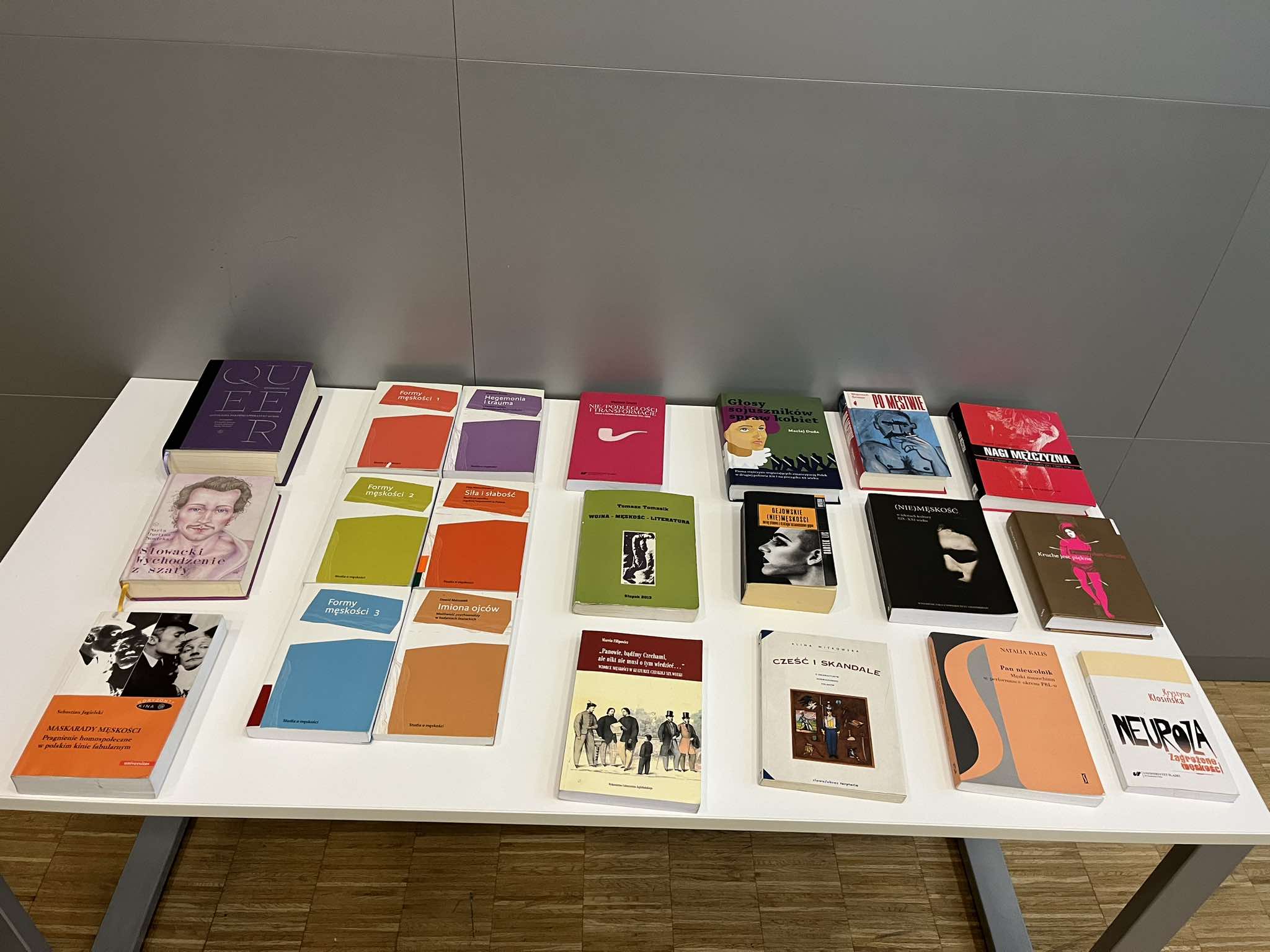 The last panel of the conference, continuing the ‘Traditions’ segment, was opened by Richard Müller (Institute of Czech Literature Czech Academy of Sciences), who focused on the cultural techniques of collective male experience through case study of the “Prague circle” and Brod’s and Kafka’s unfinished novel Richard und Samuel. Examining the close and intimate male friendship in both authors writings, he doubted the thesis of homosexual repression, opting for posthuman approach in Kafka’s works and highlighted the significance of “virile” homosexuality in community-building. Ludmiła Janion (American Studies Center University of Warsaw) explored crisis polish of masculinity in late state socialism (1987–1989) announced in men’s and women’s magazines, “PAN” and “Kobieta i Życie” in particular. Various quotes from “PAN” portrayed polish men as victims of the rise of feminism, depicting passive and disconnected form of heteromasculinity, expressing hope for the crisis to be resolved by neoliberal values. The last panelist Jan Matonoha (Institute of Czech Literature, Czech Academy of Sciences) presented critical comparison of Jaroslav Hašek’s and Joseph Roth’s works in the light of their masculinities. While noticing similar backgrounds of both authors, he referred the differences in political views, which mirrored in their novels.
The last panel of the conference, continuing the ‘Traditions’ segment, was opened by Richard Müller (Institute of Czech Literature Czech Academy of Sciences), who focused on the cultural techniques of collective male experience through case study of the “Prague circle” and Brod’s and Kafka’s unfinished novel Richard und Samuel. Examining the close and intimate male friendship in both authors writings, he doubted the thesis of homosexual repression, opting for posthuman approach in Kafka’s works and highlighted the significance of “virile” homosexuality in community-building. Ludmiła Janion (American Studies Center University of Warsaw) explored crisis polish of masculinity in late state socialism (1987–1989) announced in men’s and women’s magazines, “PAN” and “Kobieta i Życie” in particular. Various quotes from “PAN” portrayed polish men as victims of the rise of feminism, depicting passive and disconnected form of heteromasculinity, expressing hope for the crisis to be resolved by neoliberal values. The last panelist Jan Matonoha (Institute of Czech Literature, Czech Academy of Sciences) presented critical comparison of Jaroslav Hašek’s and Joseph Roth’s works in the light of their masculinities. While noticing similar backgrounds of both authors, he referred the differences in political views, which mirrored in their novels.
The international conference ‘Central European Masculinities in a Comparative Perspective’ concluded with a summary of presented lectures by Wojciech Śmieja and Filip Mazurkiewicz (University of Silesia). Closing remarks included discussion of further research directions and plans of future work within the project, particulary organizing another international conference. The conference contributed to the search of distinct methodologies in regards of Central European studies on masculinities, focused on a local and regional perspectives, fulfilling the expectations outlined at last year’s symposium.
Agnieszka Żur
 Contact
Contact SK
SK

